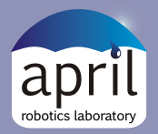
In this thesis we propose novel estimation techniques for localization and planning problems, which are key challenges in long-term autonomy. We take inspiration in our methods from non-parametric estimation and use tools such as kernel density estimation, non-linear least-squares optimization, binary masking, and random sampling. We show that these methods, by avoiding explicit parametric models, outperform existing methods that use them. Despite the seeming differences between localization and planning, we demonstrate in this thesis that the problems share core structural similarities. When real or simulation-sampled measurements are expensive, noisy, or high variance, non-parametric estimation techniques give higher-quality results in less time. We first address two localization problems. In order to permit localization with a set of ad hoc-placed radios, we propose an ultra-wideband (UWB) graph realization system to localize the radios. Our system achieves high accuracy and robustness by using kernel density estimation for measurement probability densities, by explicitly modeling antenna delays, and by optimizing this combination with a non-linear least squares formulation. Next, in order to then support robotic navigation, we present a flexible system for simultaneous localization and mapping (SLAM) that combines elements from both traditional dense metric SLAM and topological SLAM, using a binary "masking function" to focus attention. This masking function controls which lidar scans are available for loop closures. We provide several masking functions based on approximate topological class detectors. We then examine planning problems in the final chapter and in the appendix. In order to plan with uncertainty around multiple dynamic agents, we describe Monte-Carlo Policy-Tree Decision Making (MCPTDM), a framework for efficiently computing policies in partially-observable, stochastic, continuous problems. MCPTDM composes a sequence of simpler closed-loop policies and uses marginal action costs and particle repetition to improve cost estimates and sample efficiency by reducing variance. Finally, in the appendix we explore Learned Similarity Monte-Carlo Planning (LSMCP), where we seek to enhance the sample efficiency of partially observable Monte Carlo tree search-based planning by taking advantage of similarities in the final outcomes of similar states and actions. We train a multilayer perceptron to learn a similarity function which we then use to enhance value estimates in the planning. Collectively, we show in this thesis that non-parametric methods promote long-term autonomy by reducing error and increasing robustness across multiple domains.
@phdthesis{haggenmiller2022phd,
AUTHOR = {Acshi Haggenmiller},
TITLE = {Non-parametric Models for Long-term Autonomy},
SCHOOL = {University of Michigan},
YEAR = {2022},
MONTH = {July},
}